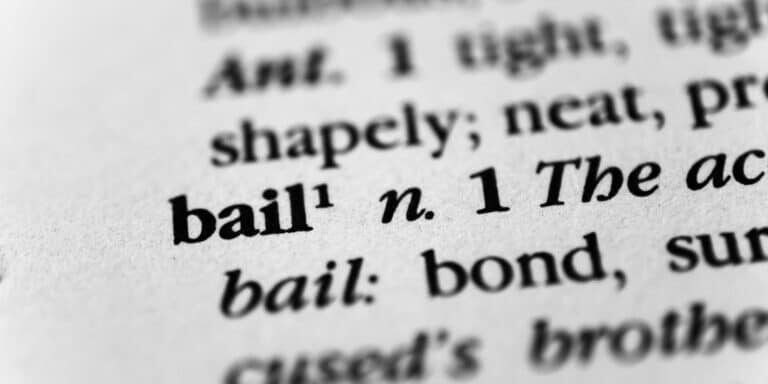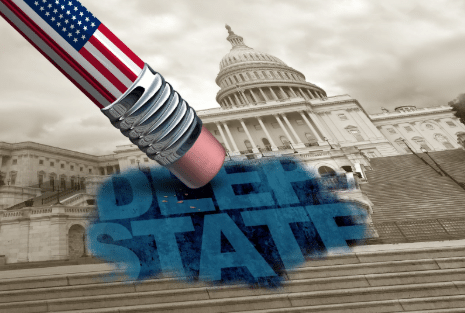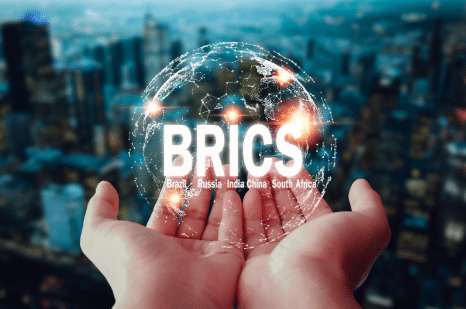
Opinion: Should $6 Trillion Bail Out People Or Companies?
EDITOR NOTE: We are trying to dig our way out of a hole by turning to the government's fiat money to relieve our individual, state and local government financial pain.
(Bloomberg Opinion) -- This is the second of two columns.
Americans have a long tradition of looking after one another during crises. It was on display after the terrorist attacks on Sept. 11, 2001; after hurricanes Katrina, Sandy and Harvey battered coasts; after floods swamped the Midwest; and after tornadoes ravaged the South. It’s evident again today in the way medical professionals are risking their lives to save Covid-19 patients, in the way workers are stocking grocery and pharmacy shelves with essentials, and in innumerable other acts of heroism and compassion.
Our collective response to the pandemic is also apparent in the federal government’s efforts to support workers, the economy and the health-care system. Thanks to a rescue effort already amounting to at least $5.7 trillion, millions of laid-off or furloughed workers have been able to put food on the table, and companies and municipalities have been able to tap financial markets for funding.
If the push now underway to restart the economy succeeds without delay, no further federal aid may be needed. But a quick end to the battle against the coronavirus looks doubtful. A number of economists and policy makers around the world, including Federal Reserve Chairman Jerome Powell; Australia’s central bank chief, Philip Lowe; and financial scholars Carmen Reinhart and Kenneth Rogoff, have warned that economies will be slow to recover until there is a medical breakthrough. China and South Korea, two countries thought to be emerging from the crisis, are still struggling to revive consumer demand and stamp out new infections.
Those warnings raise the prospect of bigger and more complicated challenges than the U.S. has tackled so far. Millions of Americans may need continued financial support, many more companies could face financial distress, and essential services such as education, transportation and health care could be severely interrupted — especially if the coronavirus resurges in the fall and winter. The federal government needs an overarching policy to address those challenges, something it has sorely lacked thus far. Powell and Treasury Secretary Steven Mnuchin have helped lead an essential intervention, but with mixed results. Workers got immediate, but only short-term, support. Markets were swiftly fortified. Corporations and small businesses were promised financial lifelines, but the terms and execution of much of that aid remain murky. State and local governments, and the health-care infrastructure, have essentially been left to beg.
If trillions of dollars in further taxpayer funding will soon be required, it will need to be accompanied by greater transparency, particularly on the fiscal side. Powell and the Fed orchestrated the monetary response with relative speed and efficiency, relying on and expanding tools from the 2008 financial crisis. Mnuchin, the White House and Congress also moved quickly, but in their haste they took a scattershot approach guided by no philosophy beyond the need to put out the fire in front of them.
Going forward, the federal rescue effort should rest on three foundations: 1) It should ensure that all Americans can maintain an adequate standard of living until the crisis has passed; 2) it should backstop essential public and private services; and 3) it should use the bankruptcy process to sort the fates of most large businesses.
In a well-functioning economy, consumers determine businesses’ destinies by voting with their dollars. It’s not a perfect system, and some companies enjoy special advantages, but it’s generally fairer and more efficient than allowing a central authority to pick winners and losers. Because the pandemic has spurred massive unemployment and sparked financial fears among people who still have jobs, shoppers are buying far less — and thus making fewer judgments on which businesses they value most.
One way to help correct that problem is to give money to cash-strapped workers and families. That’s generally not been the government’s approach in previous crises. Bailout money has more often gone to large corporations on the theory that they hire a lot of people and consequently make outsized contributions to the economy. In some cases, the government has even deemed companies too big to fail — for instance, airlines in 2001 and banks and automakers in 2008.
Experience shows, however, that big corporate rescues are problematic. It’s never clear why some companies are rescued and others aren’t. It’s still less clear why big businesses get a helping hand at taxpayers’ expense while average Americans are left to fend for themselves. And inevitably, bailouts reward companies that had been too cavalier with risk or occupied fading sectors, and taxpayers are rarely sufficiently compensated for their assistance.
In the present crisis, the government can sidestep these side effects by providing direct support to unemployed or underemployed people — via something like a universal basic income, but one that would be needs-based and temporary. The government would ensure that every American has enough income to afford basic necessities until the crisis is over. Several of our Bloomberg Opinion colleagues have recently called for a basic income, and you can find some of their arguments here. It’s an idea economists as ideologically dissimilar as John Kenneth Galbraith and Milton Friedman have embraced. Nonpartisan think tanks have calculated targets for living wages at local levels and across households of various sizes, and the government could use benchmarks such as these to determine who qualifies for aid.
While the government has already committed about $516 billion to workers in the form of one-time payments and extended unemployment benefits, that money will be gone at the end of July. Giving workers a financial floor large enough to get them through the crisis, rather than yanking support before it’s over, would help restore their dignity. And it would enable them to purchase food, housing, utilities and other necessities, stimulating demand and helping demonstrate which companies are most valued. For small and family-owned businesses whose single largest expense is often payroll, a basic income paid directly to employees rather than through banks and the Small Business Administration, as Mnuchin has been doing, would provide greater flexibility to furlough workers until the economy recovers.
Big companies, in contrast, have more resources than individuals and small businesses have to navigate crises. They can turn to public money markets, big banks, or private equity and debt deals. And if that fails, they can restructure or seek bankruptcy protection. In fact, most large corporations – including airlines, retailers, media and entertainment companies, financial services firms, and hotels — should build their futures through bankruptcy and restructuring rather than by relying on handouts from the federal government.
The U.S. is fortunate to have one of the most sophisticated bankruptcy and restructuring systems in the world, supported by thousands of lawyers, bankers, consultants and accountants who can ably handle a surge of corporate failures. By forcing creditors, vendors and workers to resolve their competing claims, this system can give distressed companies a fresh start. In some cases, they are rescued by private investors; in others, they fail. This is how markets are intended to work.
Sure, there may be instances in which companies are too important to let die, but those should be rare. Truly indispensable companies will attract buyers if the price is right. The government should allow the market to find that price before it steps in to socialize corporate mistakes or distress at taxpayers’ expense. And if it must step in, it should do so on the same strict terms any private investor would demand, so that the spoils accrue to taxpayers. Something like a sovereign wealth fund could be set up for that purpose. Like any private fund, it would be transparent about its investments and its results.
The federal government should also support essential services. Schools, transportation networks, policing, firefighting, health care, housing, food production and utilities are heavily burdened by the coronavirus and may need rescuing. The government may need to provide certain services directly. Many Americans lack access to adequate health care, for instance, because they can’t afford it or because there’s a shortage of medical professionals where they live. It’s not unthinkable that food shortages, too, could require government intervention.
Some will ask where money for workers and municipalities will come from, but that’s the wrong question. The federal government has dipped into deficit spending during every recession since 1980. The better question is whether money should be extended to big business or to average Americans. The latter is a smarter bet with clearer payoffs, in both human and economic terms.
It’s reasonable to wonder if rescuing workers will give them a disincentive to work. But a living wage extended during a crisis isn’t a permanent disincentive. And if any employers temporarily have trouble attracting workers, perhaps they should consider paying them a living wage. Big corporations raked in huge profits before the coronavirus shutdown, in no small part because they paid workers so little.
In their best moments, Americans have rallied to support their most vulnerable neighbors. The federal government would be wise to do the same if the coronavirus crisis continues — and especially if it deepens.
Originally posted on Yahoo! Finance
The financial market is crumbling and EVERYONE will be affected. Only those who know what's going on and PREPARE will survive... dare we say thrive. Our 7 Simple Action Items to Protect Your Bank Account will give you the tools you need to make informed decisions to protect yourself and the ones you love.









